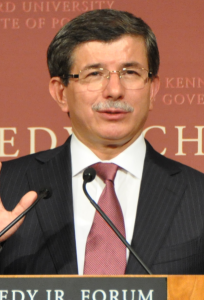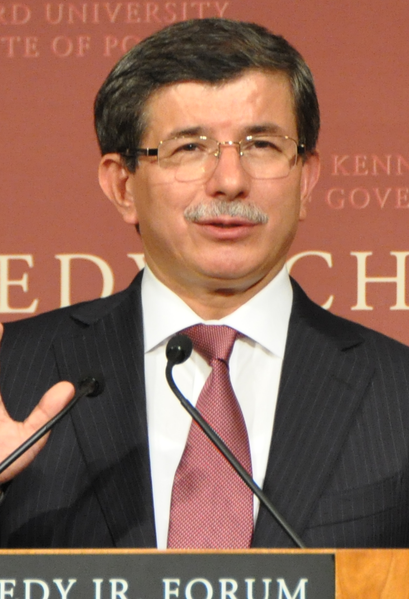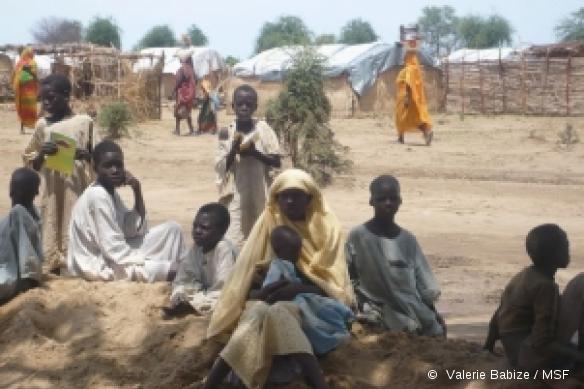Turkey confirms its boycott of the Cypriot presidency

(BRUSSELS2) Turkish Foreign Minister Ahmet Davutoglu confirmed this when he came to Brussels for theEuropean Policy Center March 23. Turkey intends to boycott the Cypriot presidency of the Council of the EU, during the 2nd semester of 2012. Turkey will cease its relations with the presidency of the EU”if there is no agreement by then ". This does not mean no contact with the EU: "there will always be contact", on foreign policy in particular, " but not with the Greek Cypriots».
A declaration of principle of which we do not know the concrete modalities. It is customary, in fact, for the Presidency of the Union to regularly "debrief" the candidate countries on certain discussions which take place at the highest level. Thus, during the last Foreign Affairs Council, a meeting of the candidate countries was organized with the High Representative and in which the presidency took part. The same practice takes place at European summits. But, normally, it is Herman Van Rompuy, the permanent president of the European Council who goes "in contact". And not the rotating presidency. So it looks a bit like a "bluff".
But even if it is only on one or two occasions that this "boycott" gives rise to exercise, it will cast a shadow over Turkish-European relations, which have been difficult lately. Even Alain Juppé, the French Minister of Foreign Affairs - who cannot be accused of being one of the anti-Turks - felt that Turkey was going a step too far: " it is unacceptable that a country outside the European Union intends to choose who should or should not chair the EU he answered a question from B2.
Turkish-European relations in a roller coaster
However, Minister Ahmet Davutoglu took advantage of his appearance before the EPC to insist on Turkey's desire to join the EU and developed his argument around the "three earthquakes"which have structured relations between the two parties. This Turkish vision of relations with the rest of the continent is worth a detour. First of all, the fall of the USSR has opened up important opportunities,"that Turkey has not been able to grasp, it must be admitted" he explained. The ten years that followed "have not been used correctly". Turkey has been "slow to introduce democratic reforms [and] our economic performance has not been good". For its part, the EU has made "the error of not seeing Turkey as a partner, with all its assets". In particular, Turkey could have been a stabilizing force for the Balkans. NB: it got involved in the European operation Althea, even wanting to take command of it (see also: No Turkish at the head of EUFOR Althea).
The second "earthquake" was 11/XNUMX and the security shift taken by Europe. "The rhetoric of democracy has been replaced by the rhetoric of security", which had notable consequences for EU-Turkey relations... Indeed, Europe increasingly saw Turkey "as a risk rather than an asset". Turkey, meanwhile, has developed "a very constructive democratization process"an economic situation"miraculous"as well as a diversification of its foreign policy agenda:"We have something to say about the entire UN agenda".
The third "earthquake" is recent, even current: the economic crisis and the Arab spring. "Turkey is in the middleu of these crises"but at the same time she is"an island of stability“It is therefore time for the international community, and the EU first, to open up to Turkey.”Turks are part of Europe [...] it's a reality that no one can change“Ahmet Davutoglu therefore wants Turkey to join the EU as soon as possible.”I'm not dreaming, Turkey will soon be in the EU" did he declare.
An asset for EU foreign policy
Turkey is not a risk for the EU, on the contrary, it could bring it. At the economic level first, because "today Turkey creates more jobs than the EU". But also for foreign policy. By the way, Ahmet Davutoglu talks "almost weekly with Catherine Ashton on the phone". EU with Turkey "will be a global power" he added. Turkey is already "a bridge between North and South". The minister took the example of Somalia by evoking the visit of the Turkish Prime Minister, Mr Erdogan (in which Davutoglu also participated), "the first plane landing in Mogadishu with a Prime Minister". Turkey also opened the first embassy there (except those of neighboring countries). Also, "more planes, more regularly, that's important", and that's what Turkey is doing. Generally speaking, the idea is to develop a common strategic vision, since "we defend the same values".
Europe, too, must make an effort
Ahmed Davutoglu warned Europe against itself. If he is convinced that Europe will overcome the economic crisis, it is the cultural aspect that risks posing a problem in the longer term, and in particular "growing racism". He also laments the lack of consistency on the part of "some Member States who want to have good bilateral relations"with Turkey, while at European level, there are some who are blocking,"like a ghost" he concluded... Guess!



thanks to Turkey for the lesson. If after that there are still European countries favorable to membership, it is to despair of our leaders.